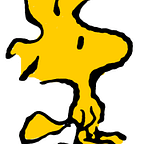‘Rio Bravo’ is Close Enough to Perfect
It can be hard to measure perfection in movies. There is always something to complain about. But sometimes all you need is one viewing. Even if there are quibbles, close enough can be good enough. That is the case with Rio Bravo.
In 1958, after decades of directing hits like Gentlemen Prefer Blondes and To Have and Have Not, Howard Hawks was in bad shape. Nursing the wounds incurred by his ill-judged directing of the epic flop Land of the Pharaohs (1955), he had exiled himself from Hollywood to Europe. Casting about for a project to bring him back into the game, he seized on a smart new Western script by Leigh Brackett and Jules Furthman, who had also penned The Big Sleep for Hawks. Loaded with the witty dialogue he was known for and enough material for two or three lesser movies, it seemed like an easy bet.
After Hawks assembled the cast, it was almost an overkill of starpower. Rio Bravo brought together John Wayne (who hadn’t done a western since 1956’s The Searchers and was looking to get back in the saddle), popular singer and budding actor Dean Martin, TV and teen idol Ricky Nelson (billed as “the rockin’ baby-faced kid”), and Angie Dickinson, a hot young chippie who knew her way around the Rat Pack. Of course, sticking all these disparate stars out in the desert and having them fight bad guys while trading quips could have easily been a disaster (Dino on horseback?). But Hawks was simply not going to allow himself two bombs in a row.
Shifting gracefully into middle-age, Wayne plays John T. Chance, an ex-gunslinger turned sheriff for a tiny speck of a Texas town. Dino digs beneath his Vegas nightclub shtick to give Chance’s barely recovering drunk of a deputy — once called Dude, he’s now nicknamed “Borracho” (drunk) by the local Mexicans — a shot at recovering his dignity. In the neatly handled and practically dialogue-free establishing scenes, Hawks sets up Dude as the once-proud man seeking redemption, Chance the grumpy embodiment of law and order, and also the reason they’re likely to die.
Barely a minute in, Chance has already arrested for murder the brother of a wealthy local rancher who has dozens of gunmen at the ready and no moral compunction about using them. The U.S. Marshall is at least six days away. That leaves Chance and Dude, plus a second deputy Stumpy (Walter Brennan doing his patented old codger comic relief bit to crusty perfection), alone against the odds. Hawks ratchets up the tension with a clutch of fantastically harum-scarum shootouts, including a classic with an imaginative use of dynamite, but never loses the sense of romantic cool that keeps the movie light on its feet and briskly fun.
Although Rio Bravo is at its core a classic outnumbered-and-outgunned scenario not unlike High Noon, Hawks actually wanted to make a riposte to what he saw as that movie’s immoral premise. Unlike High Noon’s sheriff, who pleads for help from his town’s civilians, Chance is constantly turning down help. He reasons that having armed amateurs around would simply give the rancher’s gunsels “more targets to shoot at.” Better to leave it to the professionals, he thinks. It is hard to imagine a movie more in love with professionalism. The characters are constantly graded by each other on how “good” they are: “That was good;” “You were good in there;” “Is he any good?”
The backdrop to the action and all this talk of professionalism is Dude’s fight to kick the bottle and regain his status as top-notch officer of the law . Used to playing a more comical boozer, Dino does an impressive job here portraying a once-proud man consumed with self-loathing and worry. The script piles on the challenges for him; not only putting him in a life-and-death struggle, but throwing him into gunfights while having the shakes. It’s a richer characterization than typically seen in Westerns, which were still a few years away from breaking out of the genre’s restrictions.
Also rare in Westerns at the time, and indicative of Hawks’ touch, is Chance’s romantic interest, an itinerant possible card-cheat called Feathers (Angie Dickinson, in full va-va-voom bloom). In most male-centric movies of this type, scenes involving the hero’s love interest are usually a snooze, like interstitial dialogue in a musical, just something to get through. But Feathers’ flirtation with the easily befuddled Chance is something to watch: quick-witted, wry, and ripe with innuendo.
Does all this add up to perfection? Maybe not. There are quibbles. Nelson is not the strongest actor, to put it mildly. Maybe the runtime could have been trimmed by a few minutes. But when a movie hits this strong on so many levels — Wayne and Dino playing buddy cowboys is fantastic enough, but adding in Dickinson and the salty dialogue, is more than your average moviegoer can reasonably expect to be hit with when the lights go down—it just seems rude to complain.
A version of this article was first published at filmcritic.com.
Title: Rio Bravo
Director: Howard Hawks
Writer: Leigh Brackett, Jules Furthman
Cast: John Wayne, Dean Martin, Ricky Nelson, Angie Dickinson, Walter Brennan, Ward Bond, John Russell
Studio: Warner Bros.
Year: 1959
Website
